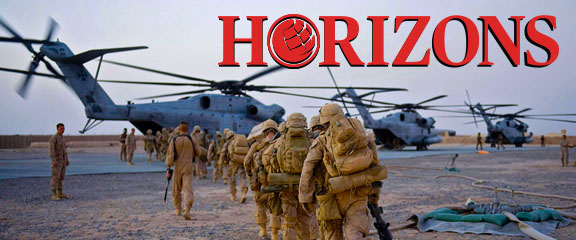The United States has long used covert and overt influence for regime change in the world as a single dominant force. History is replete with American participation in overthrowing and establishing regimes in the Middle East, North Africa, and Latin America.
As the world’s dominant superpower, Americans have many tools and techniques to accomplish their goals. Given Imran Khan’s proclivity towards China and Russia, official Russian visit and silence on the Russian invasion of Ukraine, the charges of American conspiracy are plausible.
While a handful were glued to the screen to watch the live-action from Islamabad, most Pakistanis went about their lives as if the change of prime minister was of no consequence. But those who value lip-service and discussion over action, publicity and advertising over reality, and fantasy over the natural world enjoyed the prime time TV show.
Why have the majority of people turned off the political noise? Alienation implies a feeling of separation from and discontent with society. Politics’ feudal and tribal nature has induced a sense of powerlessness among the masses.
The opposition had a lot of freedom to gather and organise because of poor administration and economic mismanagement. As support from the military began to dwindle, Imran Khan discovered the ideal elevator pitch for the next elections by embracing a conspiracy to redeem himself.
To counter the anti-corruption slogan that helped him win the last election, he needed a new one — a new story to replace it.
However, there are significant societal and political ramifications to this. For Pakistan, the United States is a vital strategic and commercial ally. In 2021, the two nations exchanged commodities worth more than $8.9 billion.
A debt-ridden economy like ours should be alarmed by these numbers.
Many believe that Imran Khan jeopardises a vital but precarious commercial and strategic relationship by portraying a hostile narrative to the United States.
Anti-American political groups have generally been the religious right, with a small voting base. For a good reason, this has not been a popular rallying cry for the people; it might jeopardise a critical economic and geopolitical partnership in Pakistan’s best interest.
The inequitable paradigm within which Pakistan-US relations have historically worked does not preclude us from critiquing the US foreign policy. But it’s a bad idea to toss away the baby with the bathwater.
Rather than promoting anti-America sentiments, Imran Khan should rally the people toward a more tolerant and inclusive Pakistan — nationally, regionally, and globally. All political parties would be well to keep in mind that progress and antagonism are mutually incompatible.
Prime Minister Shehbaz Sharif’s new coalition government will have its job cut out. The new government will encounter considerable challenges from the start. A worsening economic crisis, rising political turmoil, and deterioration of relations with Western powers are just a few issues that the country is now confronting. We have no idea if the ruling coalition, consisting of numerous parties and groups with often opposing political and economic goals, will continue until the midterm elections.
Repairing the economy is the most significant challenge facing the Sharif administration. Pakistanis face double-digit inflation largely due to the country’s volatile political environment, and much-needed foreign assistance for the country’s balance of payments which is currently on hold. Commodity prices, particularly food and energy, have strained the external sector.
What is Sharif and Zardari’s long-term plan now after Imran Khan’s ouster? All the choices appear difficult.



